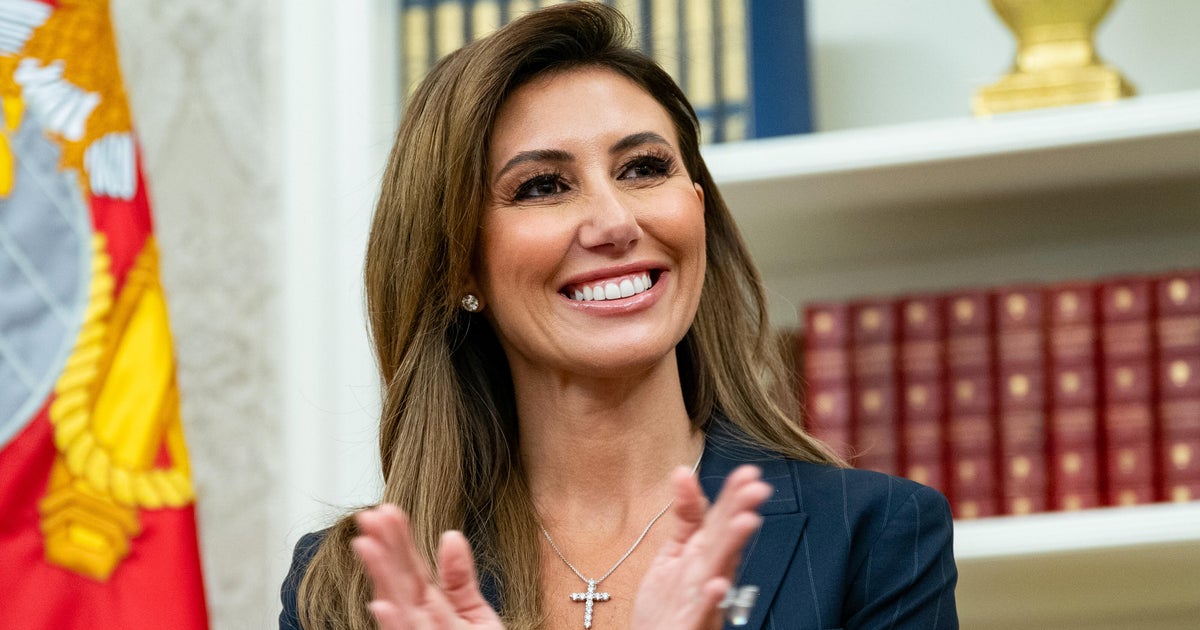In a significant legal development, a federal judge has declared that Alina Habba, previously known for her role as President Donald Trump’s personal lawyer, has been illegally serving as the U.S. Attorney for New Jersey. This ruling was issued by U.S. District Judge Matthew Brann of Pennsylvania on Thursday and has sent ripples through the legal community, stemming from challenges to Habba’s appointment raised by three criminal defendants.
These defendants, who are facing serious charges including drug offenses and investment fraud and bribery, argued that Habba’s appointment violated the Federal Vacancies Reform Act. This act establishes procedures for temporarily filling vacant executive agency positions that require presidential appointment and Senate confirmation. Judge Brann’s decision highlighted that Habba has been serving “without lawful authority” since her term began in early July.
Alina Habba was appointed as the acting U.S. Attorney in the District of New Jersey just last month, following a somewhat contentious series of events involving the Trump administration and the state’s judiciary. Despite not formally dismissing the criminal indictories of the defendants who raised the challenge, Judge Brann ruled that Habba is disqualified from participating in any ongoing cases, marking a significant limitation on her prosecutorial powers.
This situation is underlaid by the complex interplay of federal law and political maneuvering. Initially, Habba, who had served as a defense attorney for former President Trump, was designated interim U.S. attorney, a position limited under federal law to 120 days unless extended by a district court or confirmed by the Senate. Democratic Senators Cory Booker and Andy Kim of New Jersey were opposed to her permanent appointment, casting doubt on its viability in the Senate.
As the 120-day period neared its end, the local federal district court judges in New Jersey opted not to extend Habba’s tenure, instead appointing her second-in-command, Desiree Leigh Grace, as the state’s top federal prosecutor. However, this decision was quickly upturned as Attorney General Pam Bondi dismissed Grace, reinstating Habba under a different capacity. This sparked further legal scrutiny and debates over the legitimacy of such executive movements.
Trump’s withdrawal of Habba’s nomination—to maneuver her into the role through a different legal pathway—temporarily simplified her appointment status. Yet, Judge Brann’s recent ruling stated that this appointment as acting attorney was illegal under the Federal Vacancies Reform Act. He pointed out that the administration was only permitted a total of 120 days to fill the position of interim U.S. attorney, which had already commenced with Habba’s predecessor. Furthermore, Brann negated any attempt by the Justice Department to designate her as a “special attorney,” effectively stripping her of the capability to function in the office under that title as well.
In light of the complexities surrounding jurisdiction—given that New Jersey federal judges could harbor potential biases due to local implications—the defendants’ motions were assigned to Judge Brann, noted for his prior appointment by President Barack Obama in 2012. This external judicial review was meant to ensure impartiality in a case fraught with political tension and legal intricacies.
The implications of this decision are considerable. Although specific only to the prosecutions of the mentioned defendants, it raises questions about the validity of other actions undertaken by Habba during her tenure. Moreover, it represents a critical intersection of law and politics, where judicial rulings can significantly counterbalance or reinforce administrative decisions, thereby shaping the contours of legal governance.
In recognizing the potential for appeal, Judge Brann has paused his order to allow the Justice Department a chance to contest the ruling. This deference suggests an awareness of the broader stakes involved, including the executive branch’s authority over U.S. attorney appointments and the encompassing legal framework guiding such positions.
CBS News has reached out to the Department of Justice and the U.S. Attorney’s Office in New Jersey for further comments on this evolving story. Meanwhile, this case continues to draw attention as it touches upon the themes of legal propriety, executive authority, and the checks and balances inherent in the U.S. governance system.









